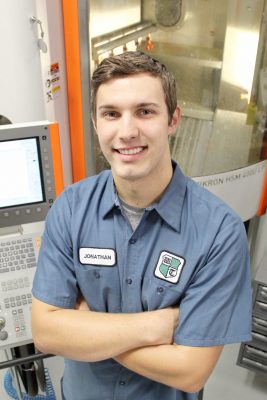 MEM Junior, Jonathan Varga, joined MEM the spring of his sophomore year after entering UConn as an ACES student; however, he always knew he would choose Management and Engineering for Manufacturing (MEM) as his major. Graduating valedictorian of his high school, Harvard H. Ellis Technical High School in Danielson, Connecticut, Varga knew he wanted to work in manufacturing and used the unique opportunity that technical high school provided him to prepare him for a degree program.
MEM Junior, Jonathan Varga, joined MEM the spring of his sophomore year after entering UConn as an ACES student; however, he always knew he would choose Management and Engineering for Manufacturing (MEM) as his major. Graduating valedictorian of his high school, Harvard H. Ellis Technical High School in Danielson, Connecticut, Varga knew he wanted to work in manufacturing and used the unique opportunity that technical high school provided him to prepare him for a degree program.
While at Ellis Tech, Varga studied Precision Machining Technology and gained critical manufacturing machining experience while still a high school student.
The Precision Machining Technology track at Ellis Technical High School prepares students for immediate employment, earning industry credentials and preparing students for entry into the workforce, apprenticeship programs or admission into a two- or four-year college. Students take academic courses as well as career and technical courses in rotating cycles. As a result, Varga gained an enormous amount of hands-on technical experience that most other high school students do not have.
At Ellis Tech students have the opportunity to start working in a manufacturing precision matching role while still in high school. When Varga was 16, he began his experience in manufacturing at Westminster Tool in Plainfield, Connecticut. There, he learned the ropes of the industry while he was in 10th grade at Ellis Tech.
In this role at Westminster Tool, he worked with a mentor and had the opportunity to express interest in learning new things, work with engineers and machinists, and gain more practical manufacturing experience. Varga started as a CNC machinist and got experience in the toolmaking, molding, and engineering departments, while learning more about many machining and manufacturing processes.
Even though he knew he wanted to pursue manufacturing as a career, and was prepared to enter the workforce right out of high school, he was confident that he wanted to go to college. When he graduated top of his class he was offered scholarships at several universities, including University of Connecticut. In the end, UConn’s MEM program, with the unique opportunity to learn both the business and engineering side of manufacturing made it an easy choice for him to attend UConn.
While UConn and MEM don’t see too many graduates from technical high schools, it is clear that students from manufacturing and machining technical programs are well prepared and capable of succeeding in an Engineering program like MEM.
Dr. Craig Calvert, assistant professor in residence in Operations and Information Management, and co-director of the Management and Engineering for Manufacturing program sees this as a positive opportunity for Connecticut manufacturing.
“It is exciting to see that there are dedicated programs like this at the lower educational levels,” Calvert said. “It exposes kids to opportunities that they might not have in a traditional education. Connecticut has a strong manufacturing base with United Technologies and General Dynamics along with all the small businesses that support these larger corporations. Jon is positioned to succeed at any of these and make a big impact upon graduation.”
Varga explains that some courses were very familiar to him, such as Introduction to Manufacturing Systems and the related lab, “I came in ahead of the game in processes,” he said. “Courses like MEM 2211 and 2212 were easy for me since I already had so much experience working with CNC and plastic injection molding. However, I am still challenged in other courses, in topics that require a lot of technical writing or advanced math.”
Varga still works for Westminster Tool while he is an excellent performing student at UConn. He has built a good working relationship with the management there and really enjoys the work. “In the future I plan to stay in the manufacturing industry, in the medical or defense sectors. The level of challenging work in those fields really interests me.”
Varga says he would love to see more technical high school students consider degrees in Engineering or majors like MEM. “A lot of technical high school graduates don’t really think about getting a 4-year degree after graduating, because they don’t see how valuable their existing skills can be when transferred to a degree, but with a program like MEM your technical skills and management ability can really be taken to the next level.”
Management and Engineering for Manufacturing is a four year undergraduate degree program at the University of Connecticut. It is a joint degree between the School of Business and the School of Engineering. MEM students take courses to meet criteria in both schools, developing management skills and engineering skills for today’s technical industries. MEM graduates work in fields such as design engineering, manufacturing engineering, continuous improvement engineering, quality control engineering, project management, supply chain management, and logistics and operations management, as well as countless others.

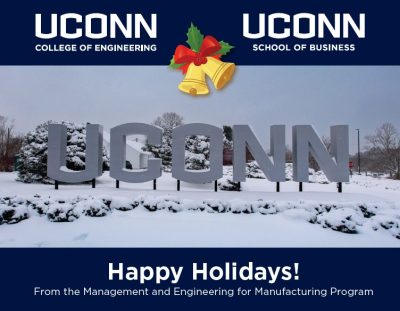

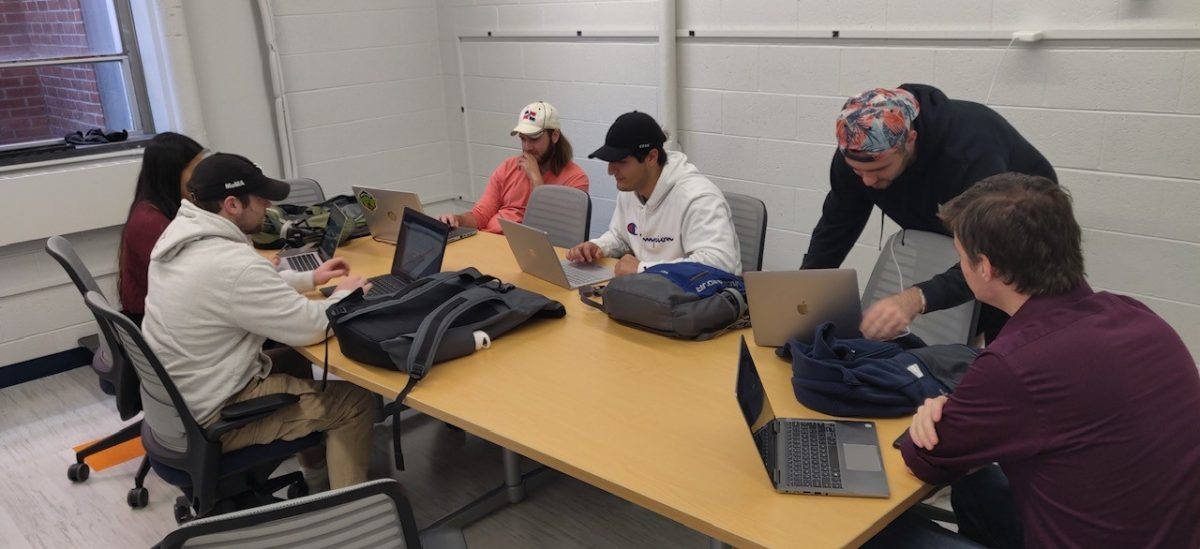


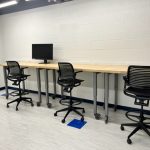
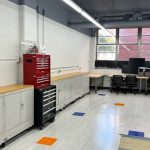
 The University of Connecticut being a state university doesn’t stop students from coming from around the world or across the country. Alexa Boden, currently a junior in Management and Engineering for Manufacturing came to UConn from Chicago, Illinois and brought her own goals and ideals with her.
The University of Connecticut being a state university doesn’t stop students from coming from around the world or across the country. Alexa Boden, currently a junior in Management and Engineering for Manufacturing came to UConn from Chicago, Illinois and brought her own goals and ideals with her. MEM Junior, Jonathan Varga, joined MEM the spring of his sophomore year after entering UConn as an ACES student; however, he always knew he would choose Management and Engineering for Manufacturing (MEM) as his major. Graduating valedictorian of his high school, Harvard H. Ellis Technical High School in Danielson, Connecticut, Varga knew he wanted to work in manufacturing and used the unique opportunity that technical high school provided him to prepare him for a degree program.
MEM Junior, Jonathan Varga, joined MEM the spring of his sophomore year after entering UConn as an ACES student; however, he always knew he would choose Management and Engineering for Manufacturing (MEM) as his major. Graduating valedictorian of his high school, Harvard H. Ellis Technical High School in Danielson, Connecticut, Varga knew he wanted to work in manufacturing and used the unique opportunity that technical high school provided him to prepare him for a degree program.